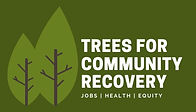There's No Time to Waste: Prioritizing Community Forestry as a Solution to the Climate Crisis
- Brooklyn Bass
- Jun 7, 2021
- 2 min read

From towns and townships to large metropolitan regions, the climate crisis affects us all. And thankfully most of our communities are embedded in ecosystems that can grow one of nature’s best tools to help us combat the negative effects of climate change―trees! Trees are the greatest technology we have to strengthen communities’ climate resilience. In cities and towns across the country, trees absorb more than 800,000 metric tons of air pollutants annually and provide numerous other environmental and health benefits. Though most environments on American soil can facilitate tree growth naturally, tree planting is not regularly occurring in all communities, leaving millions of Americans without access to Mother Nature’s extraordinary gifts. Recognizing that communities everywhere are in desperate need of rapid tree growth, Americans across the country are advocating for a significant increase in federal investment in urban and community forestry expansion.
This is not to say that we should abandon the trees we already have. As a critical part of our green infrastructure, trees require the same level of maintenance as our streets and roads. Effective urban and community forestry initiatives prioritize the maintenance of existing community trees to maximize current green infrastructure benefits. That’s why at Trees for Community Recovery, we support private and public funding for both tree and forest protection and maintenance, as well as tree planting, ensuring that tree planting dollars include a minimum of three years of follow-up maintenance and protection work to ensure planting survival.
Last week, we saw the federal government take a great step towards giving our country’s urban forestry sector a boost. On Wednesday, Reps. Doris Matsui, Jeff Fortenberry, David McKinley, Emanuel Cleaver, and John Sarbanes, and Sens. Cory Booker and Shelley Capito, reintroduced the TREES Act in the House and Senate. If passed, the bill would increase tree canopy in underserved communities and expand residential tree planting. It also would create a cost-share grant program at the Department of Energy that would provide $50M in funding to plant a minimum of 300,000 trees annually in residential neighborhoods through 2026. The TREES Act is one of several policy proposals aimed at delivering the benefits of one of the country’s greatest natural resources to communities from coast to coast and everywhere in between.
At Trees for Community Recovery, we believe that all Americans deserve to breathe clean air and live in healthy, flourishing communities. Let’s support urban and community forestry expansion to make it happen. Learn more about how we are leading the charge.




Great